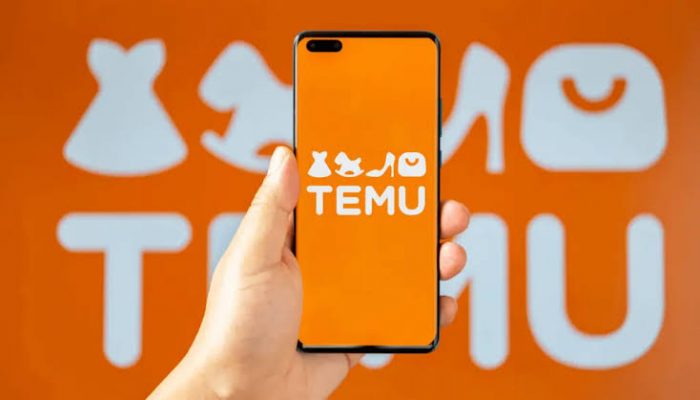Cultural Intelligence in Business: How Temu Cracked the Nigerian Market

Analysis: How Temu Cracked the Nigerian Market
Temu’s success in Nigeria wasn’t about having the cheapest products or the biggest ad budget. It was about a brand that understood cultural intelligence in business. When Temu first attempted to penetrate Nigeria, it relied heavily on Western-style marketing playbooks.
But once they brought a marketing consultant, Tochy Emereole, who explained why that approach was as ineffective as “trying to eat pounded yam with chopsticks.”
The brand quickly learned that Nigeria doesn’t respond to imported templates, it responds to brands that listen, localise, and earn trust. Temu’s major turning point came when it shifted from data-driven decision-making to culture-driven insights.
Through comprehensive consumer research that spanned all six geopolitical zones, the brand realised that Nigerian consumers weren’t simply price-sensitive; they were value-conscious and trust-aware. So, they embarked on a new route. Instead of focusing on quick sales, Temu invested in understanding the Nigerian shopping psyche.
How Nigerians have had disappointment with previous online stores, the fear of scams, and the need for social validation before trying new platforms. In essence, Temu discovered that Nigeria’s biggest barrier wasn’t access, it was trust.
This insight reshaped everything from their tone of communication to platform strategy. They built what was later called “The Bridge Strategy,” connecting Temu’s global strengths with local realities.
1. Building Trust Before Selling
Temu’s first phase wasn’t to sell, but to converse. They launched The Cultural Conversation Approach, creating conversations around consumer protection, value, and transparency rather than pushing discounts.
This was followed by The Twitter PR Playbook, where they inserted themselves into trending conversations, and The Influencer Authentication Strategy, using micro-influencers with genuine credibility. Temu understood that trust isn’t built, it’s earned.
2. Meeting Nigerians Where They Are
Temu discovered that the Nigerian consumer journey is multi-platform:
Discovery on Instagram and TikTok
Research on Google and YouTube
Validation on WhatsApp and X (Twitter)
Purchase via apps and websites
Support via WhatsApp and phone calls.
Instead of forcing global funnel structures, Temu built campaigns that matched these exact behaviour patterns. Their contextual retargeting ensured that engagement led to tailored offers, not generic ads. This approach positioned Temu not as an outsider but as a participant in Nigeria’s digital conversation.
3. Localising Logistics and Payment Realities
Temu strengthened trust through operational intelligence. They offered:
- Local pickup points for buyers who feared delivery fraud
- Refund guarantees for first-time users
- Flexible payment systems to match Nigeria’s irregular FX landscape
This combination of trust-driven marketing and cultural adaptation ensured that consumers didn’t just download the app, they stayed.
Within 90 days, Temu became Nigeria’s #1 most downloaded app, with 68% retention and 56% repeat purchases. So much positive improvement for a new and skeptical market.
Lessons Businesses Can Learn
1. Cultural Intelligence Isn’t a Bonus. It’s the Strategy
Temu’s breakthrough shows that cultural intelligence in business is not an afterthought. Understanding how people think, buy, and trust is the most powerful growth strategy in any emerging market.
Businesses must stop importing foreign playbooks wholesale and start designing strategies around local truths. Culture is the invisible currency that drives loyalty.
2. Trust Is the Only Real Currency
Nigerian consumers don’t just buy products, they buy assurance. Every brand touchpoint must answer one question: “Can I trust you?”
Temu built this trust with transparency, humanised content, and consistent delivery. Your brand should, too.
3. Patience Is Power
While most brands launch with aggressive ads, Temu played the long game, investing months in building awareness before asking for sales.
For any business in Nigeria, patience is not passivity, it’s strategic timing.
4. Social Media Platforms Are Global Gateways
WhatsApp, X, and even TikTok aren’t just for chatting, they’re the new marketing frontlines. If you’re not shaping conversations there, you will become invisible to your audience.
5. Build Bridges, Not Campaigns
Temu’s story proves that success in Nigeria isn’t about shouting louder, it’s about connecting deeper. The brands that win are those that approach marketing as a relationship, not a transaction.
6. Adaptation Doesn’t Mean Compromise
Many businesses fear that adapting to local culture means diluting their identity. But it is the opposite. Adaptation strengthens a brand’s identity because it proves flexibility. Think of it as translation where you are saying the same thing but in a language people understand.
Conclusion
Temu’s entry into Nigeria is a powerful reminder that cultural intelligence in business is not a fallacy, it’s the edge that separates the brands that thrive from those that fade.
By listening, learning, and localising, Temu transformed from a foreign newcomer to a trusted household name in 90 days.
For businesses eyeing Nigeria or any African market, the question isn’t whether your product is good enough, it’s she their you understand the people well enough to earn their trust.
Related Post: Cultural Intelligence in Business: Why Businesses That Ignore Local Culture Struggle to Survive




